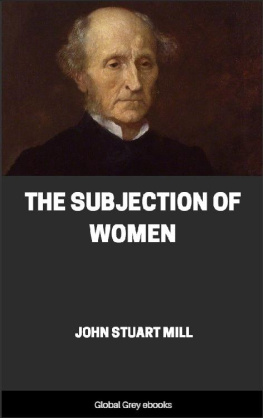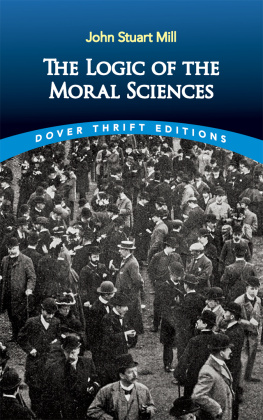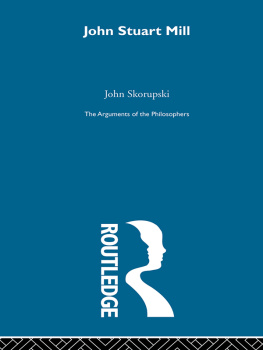
The Complete Works of
JOHN STUART MILL
(1806-1873)

Contents

Delphi Classics 2019
Version 1


Browse our Main Series

Browse our Ancient Classics

Browse our Poets

Browse our Art eBooks

Browse our Classical Music series

The Complete Works of
JOHN STUART MILL

By Delphi Classics, 2019
COPYRIGHT
Complete Works of John Stuart Mill

First published in the United Kingdom in 2019 by Delphi Classics.
Delphi Classics, 2019.
All rights reserved. No part of this publication may be reproduced, stored in a retrieval system, or transmitted, in any form or by any means, without the prior permission in writing of the publisher, nor be otherwise circulated in any form other than that in which it is published.
ISBN: 978 1 78877 958 6
Delphi Classics
is an imprint of
Delphi Publishing Ltd
Hastings, East Sussex
United Kingdom
Contact: sales@delphiclassics.com

www.delphiclassics.com
Interested in John Stuart Mill?

These comprehensive editions are beautifully illustrated, packed with bonus texts and offer eReaders some of the greatest philosophical works ever written.
Explore our Philosophers...
The Books

Rodney Street, Pentonville, Middlesex Mills birthplace

Pentonville, c. 1800

40 Queen Anne's Gate, Westminster Mills childhood and adolescent home from 1814 till 1831
A System of Logic

RATIOCINATIVE AND INDUCTIVE
EIGHTH EDITION TEXT, 1882
Mills first major work, A System of Logic (1843) proposes the five principles of inductive reasoning that are now known as Mills Methods , which attempt to expound a psychological system of logic within empiricist principles. The treatise is regarded as a seminal work in the philosophy of science, as it outlines the empirical principles that Mill would use to justify his moral and political philosophies.
With the publication of this book, Mill entered the debate over scientific method that followed on from John Herschels 1830 publication of A Preliminary Discourse on the Study of Natural Philosophy , which incorporated inductive reasoning from the known to the unknown, discovering general laws in specific facts and verifying these laws empirically. William Whewell expanded on this in his 1837 work, History of the Inductive Sciences, from the Earliest to the Present Time , which was followed in 1840 by The Philosophy of the Inductive Sciences, Founded Upon their History , presenting induction as the mind superimposing concepts on facts. Whewell famously argued that laws were self-evident truths, which could in theory be known without need for empirical verification. Mill countered this tenet in A System of Logic , arguing that, similar to Herschels arguments, laws were discovered through observation and induction and thus required empirical verification.
The book would become important to the history of science, bearing a strong influence on scientists such as Dirac and Gottlob Frege, who rebuked many of Mills ideas about the philosophy of mathematics in The Foundations of Arithmetic . Mill revised A System of Logic several times over the course of thirty years in response to critiques and commentary by Whewell, Bain and others.

The first editions title page
CONTENTS

Sir John Herschel (1792-1871) was an English polymath, mathematician, astronomer, chemist, inventor and experimental photographer, who invented the blueprint.
Preface to the First Edition.

T HIS BOOK MAKES no pretence of giving to the world a new theory of the intellectual operations. Its claim to attention, if it possess any, is grounded on the fact that it is an attempt, not to supersede, but to embody and systematize, the best ideas which have been either promulgated on its subject by speculative writers, or conformed to by accurate thinkers in their scientific inquiries.
To cement together the detached fragments of a subject, never yet treated as a whole; to harmonize the true portions of discordant theories, by supplying the links of thought necessary to connect them, and by disentangling them from the errors with which they are always more or less interwoven, must necessarily require a considerable amount of original speculation. To other originality than this, the present work lays no claim. In the existing state of the cultivation of the sciences, there would be a very strong presumption against any one who should imagine that he had effected a revolution in the theory of the investigation of truth, or added any fundamentally new process to the practice of it. The improvement which remains to be effected in the methods of philosophizing (and the author believes that they have much need of improvement) can only consist in performing more systematically and accurately operations with which, at least in their elementary form, the human intellect, in some one or other of its employments, is already familiar.
Next page



































